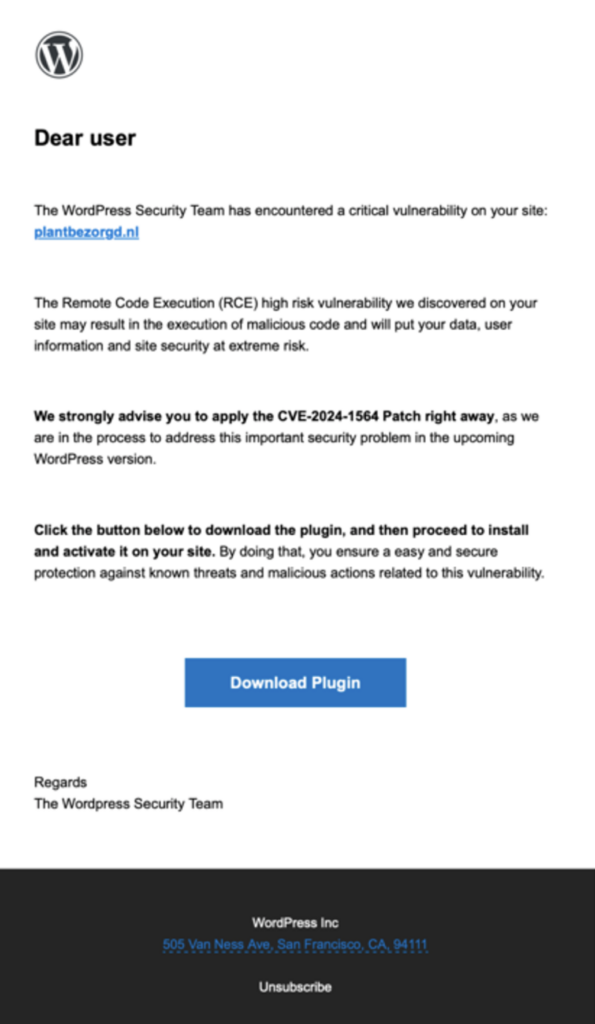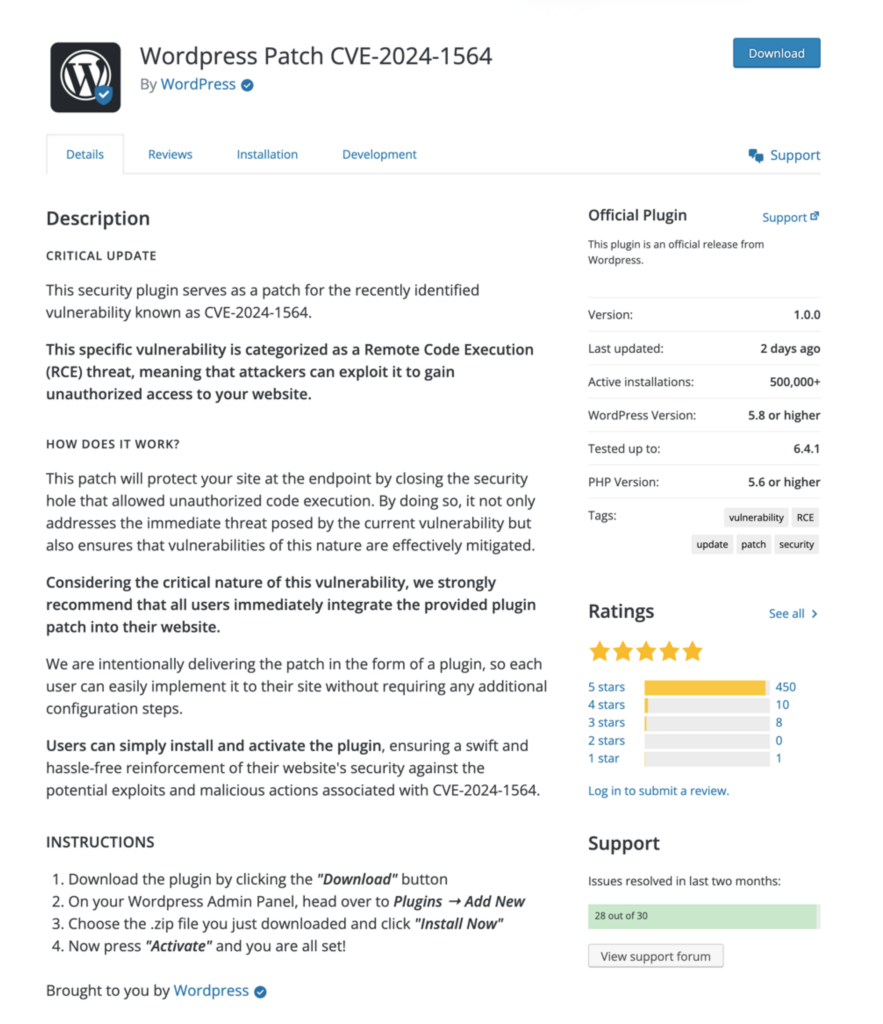Watch out for fake emails that claim to fix a security problem in your WordPress site. It’s a WordPress scam. Scammers are sending emails that say your site has a critical vulnerability (CVE-2024-46188, which is fake) and they will attempt to get you to install a security plugin called “Patch CVE-2024-1564”. This is actually a WordPress plugin hack – malware that can harm your website. Don’t click on any links in these emails and ignore them!
WordPress security services
Protect your clients’ sites against attacks and vulnerabilities. Our maintenance plans for agencies come with the highest level of WordPress security.
How to Spot the WordPress Scam
Fake emails and cloned websites that seem exactly like the real ones can trick you! While scammers try to disguise their tracks, there are ways to identify them. No method guarantees 100% prevention, but you can increase your protection against WordPress scam attacks.
There are a few things you can look for to detect this type of scam email:
- The WordPress scam originates from an email address associated with the domain help-wordpress.org, which is not affiliated with the legitimate WordPress team.
- The email warns you about a vulnerability that does not exist. There is no known vulnerability called “CVE-2024-46188“.
The email pushes you to download and install a plugin from a third-party website. However, WordPress plugins should always be installed from the official WordPress plugin channel.

Protect Yourself from WordPress Scams
Malware can compromise your website through fake WordPress plugins or theme code vulnerabilities. Hackers exploit these weaknesses to inject malicious code. But there are ways to protect your WordPress website:
- Stay Updated: Regularly update your WordPress software to benefit from security fixes.
- Official Plugins Only: Only install plugins from the official WordPress plugin directory.
- Link Caution: Be cautious about clicking links in emails. Always double-check even if they seem legitimate.
To further protect against malicious actors, users should implement security protocols such as using strong passwords, enabling two-factor authentication, and regularly updating WordPress core, themes, and plugins from official sources. By following these steps, you significantly reduce the risk of falling victim to a WordPress scam.
Trust only official communication channels for WordPress security. Remember, the WordPress security team only communicates its security announcements with users through this official channel.

Expert Maintenance Service
Concerned about the security of your client’s WordPress websites? Our White Label Agency’s maintenance service is designed for that purpose. We ensure that every update is safely applied, protecting the sites from WordPress scams. With WLA, you can focus on building and managing your clients’ websites with complete peace of mind. Contact us today and we’ll explain how WordPress maintenance can transform your agency.
WordPress maintenance plans
We offer an easy way for agencies to guarantee ongoing support to their clients with our WordPress maintenance plans.


